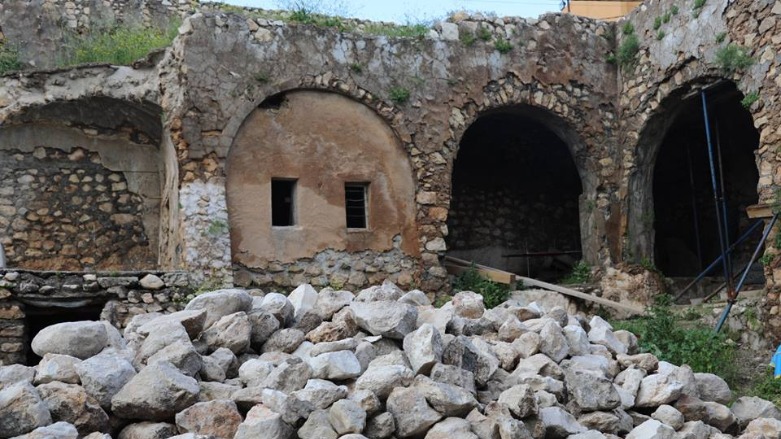US funds restoration of tomb of Biblical prophet in al-Qosh
The top US diplomat in Iraq, Chargé d'Affaires Joey Hood, and the Consul General in Erbil, Steve Fagin, visited the tomb of the Biblical prophet Nahum on Friday...

WASHINGTON DC (Kurdistan24) – The top US diplomat in Iraq, Chargé d'Affaires Joey Hood, and the Consul General in Erbil, Steve Fagin, visited the tomb of the Biblical prophet Nahum on Friday as they announced that the US would provide an additional $500,000 to help preserve the historic site.
The tomb is located in the Christian town of al-Qosh, southeast of Duhok, in the Nineveh Plains. Work on the restoration of the ancient structure was begun by the Alliance for the Restoration of Cultural Heritage (ARCH.) The building was “literally about to collapse,” when ARCH moved in to stabilize it “in preparation for a more complete rehabilitation,” the organization’s website explains.
In 2014, as the Islamic State rampaged through Northern Iraq, it threatened al-Qosh. But the terrorist organization was prevented from entering the town by the Peshmerga, along with local fighters. However, the Islamic State did destroy other historic sites in the area, making the preservation and restoration of Nahum’s tomb all the more important, as ARCH explains.

The prophet Nahum lived during the last days of the Assyrian empire, whose capital was Nineveh, very close to modern-day Mosul. The Assyrian empire was notorious for its cruelty—and Nahum prophesied its defeat.
“Woe to the city of blood, full of lies, full of plunder, never without victims! . . . Who has not felt your endless cruelty?,” Nahum wrote around 640 BC.
The end of what had been the Middle East’s most powerful empire would come some thirty years later.
About 150,000 Jews lived in Iraq prior to the establishment of the state of Israel, when almost the entire Jewish population was forced to leave. Until then, Nahum’s tomb had been a major site for pilgrimage for the Kurdish Jewish community.
ARCH stresses that the shrine is also important to Christians and Muslims, and it hopes that the restoration of such historic monuments in al-Qosh will help make it a regular tourist destination.
Editing by Nadia Riva
